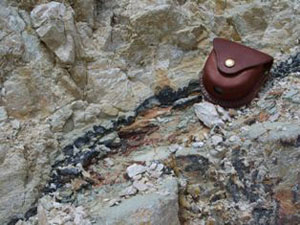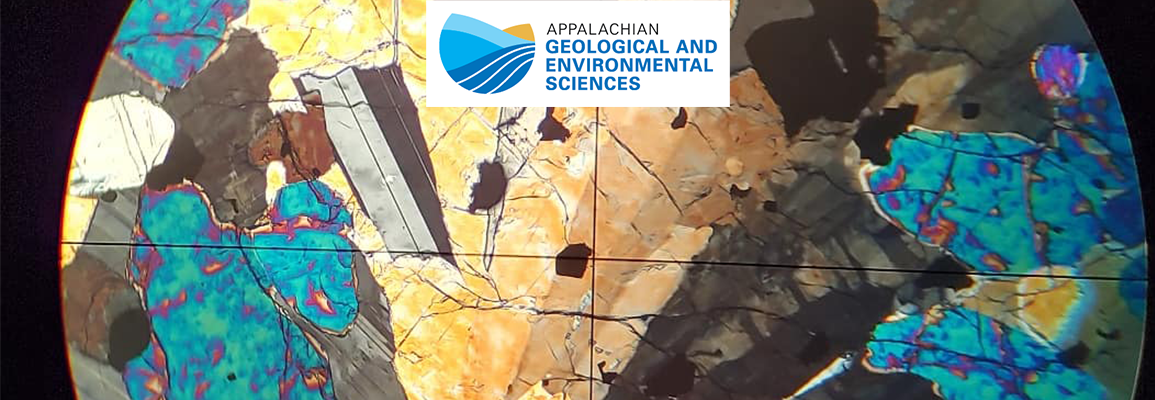What do the minerals in rocks tell us? What is the role they play in the environment?

Dr. Richard Abbott (emeritus) studies metamorphic rocks in Jamaica and ultra high pressure (UHP) metamorphic rocks in the Dominican Republic.
Dr. Sarah Carmichael studies reactive fluid flow and mineralization in all levels of the earth's crust. Her current research involves biological minerals in caves and karst, manganese oxide ore deposits, carbonatite and silica-deficient volcanic rocks, and the geochemistry of mass extinctions.
Dr. Gabe Casale uses fission track dating techniques in zircons in order to track the uplift history of the rocks that contain them, particularly in the southern Appalachians. He also looks at carbonate vein minerals to determine the mechanisms and history of fault systems.
Dr. Jamie Levine works on high-grade metamorphic systems on scales from centimeters to kilometers, with work that analyzes the microstructures and geochemistry of minerals. Her recent work has focused on the role of strain in promoting partial melting in migmatites, and positive feedbacks that exist between partial melting reactions and deformation.
Dr. Cynthia Liutkus-Pierce's research combines sedimentology and stratigraphy with stable isotope geochemistry in order to reconstruct paleolandscape conditions. She is currently investigating the volcanic origin of ash deposits in northern Tanzania, including an ash that preserves over 60 footprints of ancient Homo sapiens (our direct ancestors). The ash dates to 120,000 years ago and preserves some of the oldest modern human footprints in the world.
Brian Zimmer studies volcanoes and their deposits. He has worked on volcanoes in Mexico, Ecuador, Japan, and the American southwest. Through field investigations, he tries to determine when and how different volcanoes erupted throughout history. Though he does not directly advise students, Brian encourages fellow volcanophiles to contact him about research interests or to discuss potential graduate programs.
